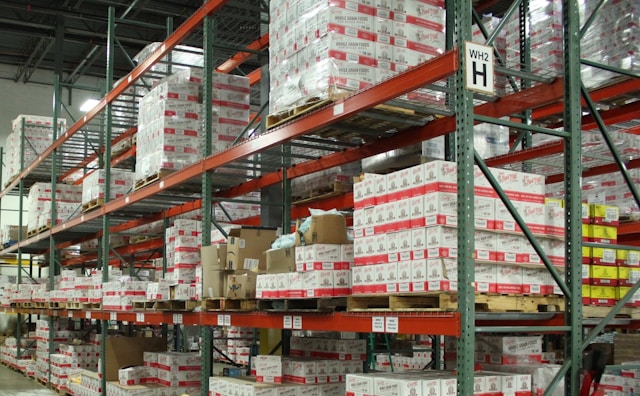There was a time when the word “battery” only meant the pack you slid into the back of a TV remote or flashlight. Today, it’s one of the most important technologies of the modern world. Batteries are powering everything from smartphones to cars, homes and cities. They’ve become symbols of progress, sustainability and freedom. The revolution is quiet but it’s changing lives everywhere.
A Power Source We Take for Granted
Think about your morning. Your phone alarm wakes you up. You scroll through messages, check the weather, maybe even watch a video before getting out of bed. All of that is possible because of a small rechargeable battery. Step outside and you’ll probably see electric cars on the road or scooters parked at the corner. Those too rely on powerful battery systems.
It’s weird how normal it feels now. A decade ago a fully electric car felt like science fiction. Solar panels and home storage batteries were niche. Today many households are considering them. We no longer ask if batteries can handle big challenges. We ask how much bigger, faster and cleaner they can get.
The Push Toward a Greener Future
One of the biggest drivers of the battery revolution is climate change. Nations are looking for ways to cut carbon emissions and leave fossil fuels behind. Renewable energy sources like wind and solar are essential but they come with a challenge. The wind doesn’t always blow. The sun doesn’t always shine.
That’s where batteries come in. By storing excess energy when production is high they make sure the lights stay on even when nature takes a pause. Cities around the world are investing in large scale battery farms. These massive storage systems act as buffers keeping electricity reliable while supporting cleaner energy grids.
On a personal level homeowners are installing small battery units alongside solar panels. Imagine running your house at night powered by the sun you collected during the day. It’s independence in its purest form.
Electric Cars Leading the Way
If there’s one place where batteries have made headlines, it’s in the world of transport. Electric vehicles are redefining what it means to drive. They’re quieter and smoother and cleaner. The technology is still evolving but ranges are getting longer and charging times shorter.
Ten years ago, drivers worried if their car could even make it across town. Today some models can travel hundreds of miles on a single charge. Charging points are popping up on highways and city centres. It’s getting easier for families to switch without fear of being stranded.
Beyond cars we see buses, trucks and even airplanes experimenting with battery power. Public transport running on clean energy is no longer just an idea on paper. In some cities it’s already happening.
Innovation That Goes Beyond Vehicles
It’s easy to focus on cars but batteries are impacting industries far beyond transport. Hospitals use them for backup power. Farmers are using battery driven tools in the fields. Remote villages that were left behind because of weak grids are now lit up thanks to portable solar and battery kits.
Tech companies are pushing boundaries too. Lightweight and flexible batteries are being designed for wearables. Imagine clothes that generate and store energy or medical sensors that don’t need to be recharged. The possibilities are endless.
Even entertainment has a role to play. Portable gaming devices, wireless headphones and laptops all rely on batteries. Whether we realise it or not they shape the way we connect, relax and create. Just as people search for reliable ways to manage their money through best exchange rates when traveling, they also search for reliable ways to manage energy. In both cases it’s about security, trust and efficiency.
The Challenges Ahead
Batteries have their challenges. Production requires rare minerals like cobalt and lithium, many of which come from difficult working conditions. Companies need to source responsibly.
Recycling is another challenge. What happens to millions of old batteries when they reach the end of their life? Without systems in place, they become a problem not a solution. Thankfully innovators are working on answers. From recycling plants to new chemistries that use less harmful materials, progress is being made.
Then there’s infrastructure. Fast charging networks, safe storage systems and consistent supply chains are key to this revolution moving forward. Governments, businesses and researchers need to keep working together.
Everyday Life, Quietly Changed
The amazing thing about this revolution is how quiet it is. You don’t hear the hum of a battery at work. You don’t think about the lithium-ion cells in your phone or car every day. But step back and you see how much they’ve changed modern life.
Travelers use portable power banks to stay connected abroad. Workers carry laptops that last through meetings and flights. Families road trip in electric SUVs with kids streaming movies in the back seat. Even the way we picture a home has changed. Smart appliances, renewable systems and backup storage are becoming part of the blueprint.
The Future Is Already Here
What’s next? Many think the next wave will come from solid-state batteries. They promise higher energy density, safer performance and faster charging. If it scales well it could be the final push electric transport and renewable storage need to dominate.
We may also see batteries that integrate into daily objects. Imagine walls or furniture doubling as storage units. Or cities where lamp posts capture and store energy for use at night.
The future may not come with fireworks but with quiet reliability. That’s the nature of this revolution. It sneaks into your routine until one day you realise the world has changed around you.
Closing Thoughts
The story of batteries is not just about technology. It’s about how small, quiet cells of stored power can change entire industries and daily lives. They are a symbol of resilience and a reminder that progress is not always loud. Sometimes it’s the quiet revolutions that leave the biggest marks.And so we move forward, batteries in tow, homes and hopes. And we may not always see them but the truth is, the world is powered by energy stored.




